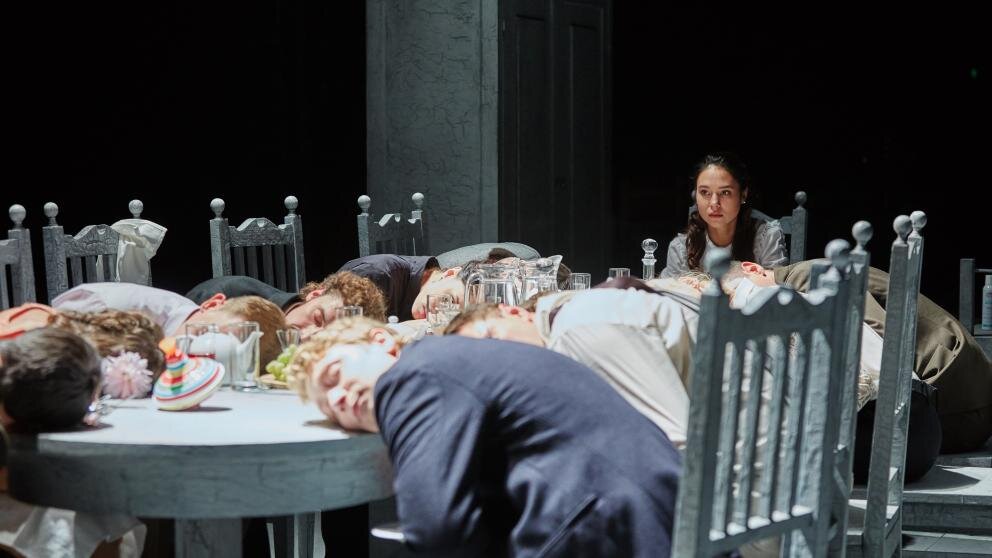The audience are warned before going in of potential splatter, and offered ponchos. This obviously sets an expectation, which is immediately subverted when we walk into a room where the playing space is pristine and white, the performers wearing clean white outfits, while one performer lounges in a chair, covered in fake blood. As we wait for the show to begin, La Roux’s The Kill plays on loop, and I wonder about how the actor managed to get into the white jumpsuit and not get it covered in blood, which drips from the toe that dangles over the edge of the white chair, onto the white floor.
The early movements of the performance are set to silence; there is a ghost (which turns to highly comedic effect later on) and two performers, dressed in white. One covered in blood, one face made up like a ghost in a pantomime. The choreographed movements of a fight ensue, the fight becoming more graphic but also more performative in each repeat of the cyclical choreography. The actors vocalise at first, and in later “rounds” are accompanied by music. As they move through the space the pristine white is tarnished, with the mess expanding and getting increasingly absurd as they go on.
There is an element of duration at play, as we witness nothing explicitly happening, while it is clear that the meaning of the fighting and the ensuing mess is evolving and expanding before our eyes. Without narrative the audience fill the gaps, imbuing meaning to the marks in the floor, the lengths of the pause between fights as the actors prepare again. Were the songs different or the same? Did the cycle of the choreography change intentionally?
The cycle reaches a pinnacle of absurdity with literal buckets of fake blood dumped on the floor; this is where the production lost me. Earlier moments caused thoughts of our willingness to watch violence on TV and in films so casually, whereas in a live environment it was quite jarring. These final absurd moments while funny, did (for me) take away from the overall feeling of the production.
Notwithstanding, this was a feat of production; the actors were exceptional in their physical commitment, and the design was clever and inventive, continually surprising the audience with where the blood would come from next.



















